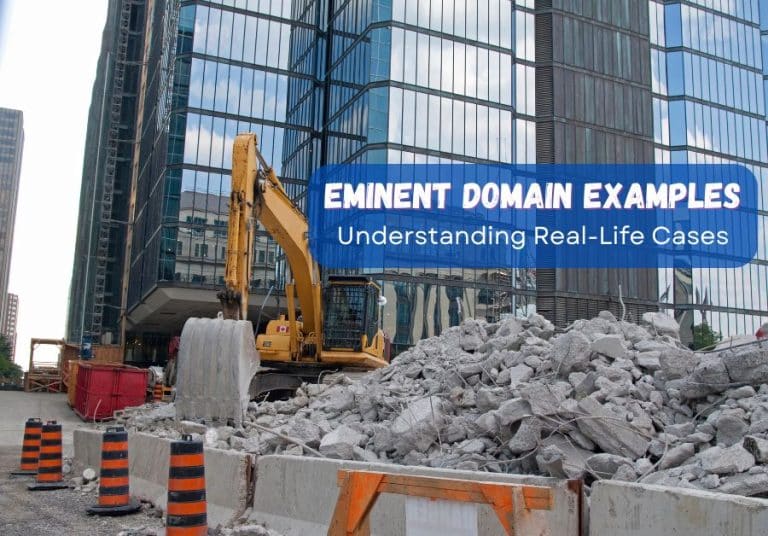I used to think wills and estate planning were something to worry about later, but I’ve realized they’re one of the most important decisions you can make for your future.
Creating a will and a comprehensive estate plan ensures your wishes are respected, making things easier for your beneficiaries. Knowing your assets will go to the right people also brings peace of mind.
KEY TAKEAWAYS
I get it if you’re unsure where to start—it can feel overwhelming. But breaking it down into key steps, like setting up wills, trusts, and powers of attorney, makes it more manageable. These documents can prevent legal complications and help your loved ones navigate the process smoothly.
I’ve learned that estate planning isn’t a one-and-done task. Life changes and your plan should, too. Regular updates ensure your wishes are honored and comply with current laws. Taking a proactive approach now can save your family from added burdens later—and that’s a gift.
Understanding Estate Planning
Estate planning involves organizing your assets and determining how they will be managed and distributed after your death. This process uses various legal instruments to ensure your wishes are met, protect your family, and minimize estate taxes.
Key Components of Estate Planning
Estate planning usually involves several key documents and tools. These include a last will, living trust, powers of attorney, and healthcare directives. A last will details how your assets will be distributed.
A living trust lets you manage assets during your lifetime and transfer them after you pass away, avoiding probate. Powers of attorney designate someone to make decisions for you if you’re incapacitated, while healthcare directives state your medical care preferences.
The Importance of Having a Will
A will is essential because it specifies how your assets are distributed after you die. If you die without a will, state laws determine distribution, which may not align with your wishes. A will helps to avoid disputes among heirs by clearly stating who gets what.
The will’s executor, named by you, ensures your directives are followed. It also clarifies guardian choices if you have children. A well-crafted will is a critical part of estate planning, especially if you have a complex financial situation.
Types of Trusts and Their Purposes
As an attorney, I’ve seen firsthand how trusts can be powerful estate planning tools, offering flexibility and protection depending on your goals.
Revocable trusts, for example, allow you to maintain control over your assets during your lifetime while avoiding probate, making them a practical choice for many clients.
On the other hand, irrevocable trusts are permanent once established, but they provide significant benefits, such as reducing estate taxes and shielding assets from creditors.
These can be particularly useful for individuals looking to preserve wealth for future generations or support charitable causes.
Choosing the right trust requires careful consideration and a well-drafted trust document to ensure your wishes are carried out effectively. I always recommend working with a knowledgeable professional to tailor an estate plan that aligns with your needs and long-term objectives.
Protecting Your Assets and Beneficiaries
Ensuring your assets and beneficiaries are safeguarded is crucial in estate planning. This involves careful designation of guardians for minor children, smart choices for beneficiary designations, and implementing effective asset protection strategies.
Designating Guardians for Minor Children
One of the most important steps in estate planning is deciding who will look after your children if you cannot. Choosing someone you trust ensures your children’s needs are met.
I usually recommend appointing someone who shares your values and parenting style. The chosen guardian will care for your children’s physical, emotional, and financial well-being.
This decision should be legally recorded in your will to avoid any disputes and ensure that your wishes are respected. One suggestion I always give is to discuss your choice with the selected guardian in advance. Make sure they are willing to take on this responsibility.
Having this conversation helps avoid surprises and ensures your children are placed in loving and capable hands.
Effective Beneficiary Designations
Properly designating beneficiaries for your assets is critical. This includes listing beneficiaries on retirement accounts, life insurance policies, and bank accounts.
By doing so, you simplify the process of transferring assets upon your passing. These designations override what is stated in your will, so keeping them up to date is crucial.
I advise reviewing them regularly, especially after significant life changes like marriage or the birth of a child. Make sure the right people receive your assets promptly.
This helps avoid lengthy probate processes and potential disputes among family members. Correctly listed beneficiaries bring peace of mind and ensure your intentions are followed.
Asset Protection Strategies
Consider various estate planning tools and strategies to shield your assets. Trusts can protect assets from creditors and ensure they are distributed according to your wishes. They also help manage and disperse assets with privacy and control.
Diversifying your assets, including real estate and bank accounts, provides further security. Consider setting up a revocable living trust, which affords flexibility in managing and protecting your estate.
Properly structured, it can bypass probate and protect your beneficiaries. Implementing these strategies helps secure your family’s financial future and safeguards your legacy.
Navigating Legal Requirements

Understanding the legal aspects of wills and estates is crucial. Being aware of state-specific laws and the probate process can help you manage your assets effectively.
State Laws and Their Implications
I always emphasize the importance of understanding state laws in estate planning. Each state has its rules governing wills, trusts, and other estate documents, meaning what’s valid in one state might not hold up in another. For example, how a will must be executed can vary, and overlooking these differences can lead to complications.
State laws also impact beneficiary rights and potential tax obligations, which can significantly affect how assets are distributed. That’s why I recommend reviewing your estate plan, especially if you’ve moved to a new state. Working with an estate attorney ensures your plan complies with local laws, protects your assets, and ensures your wishes are carried out as intended.
Probate Court Process and Avoidance
The probate process involves legally validating a will, paying debts, and distributing assets. It requires time and can involve the probate court. Many people seek to avoid probate because it can be lengthy and public, revealing details you’d rather keep private.
Trusts are a popular method of avoiding probate. By placing assets in a trust, you can transfer assets to beneficiaries without court involvement. Proper planning and legal advice on structuring your estate can help sidestep probate challenges, saving time and potentially reducing stress.
Legal Advice and Estate Attorneys
Estate attorneys offer valuable legal advice tailored to your unique situation. They help craft a plan that aligns with your goals and complies with relevant laws. Establishing a strong attorney-client relationship is key. This trust ensures your intentions are clearly expressed and effectively managed.
They can also assist in navigating the probate process or avoiding it altogether if that aligns with your goals. A skilled attorney ensures your estate documents are in order and provides peace of mind. Investing in professional advice can safeguard your family’s future.
Life Changes and Your Estate Plan

When significant life changes occur, updating your estate plan is crucial to represent your wishes accurately.
Updating Your Will and Trust Documents
A new will or trust-based estate plan is necessary after major life events like marriage, divorce, or having children.
Ensure your documents reflect your current wishes, including the distribution of assets. A will dictates who receives your assets, while a trust can help manage your estate during your lifetime and after.
Regular reviews help avoid outdated information. For example, an ex-spouse might still be listed as a beneficiary, or a new child might not be included. Trust documents should address any changes in beneficiaries or assets.
Adjustments might also be needed if you buy or sell significant property. Making these updates ensures your estate plan matches your current life situation.
Financial Power of Attorney and Medical Directives
I often remind clients that a durable power of attorney is one of the most critical documents in an estate plan. It grants someone the authority to manage your finances if you become unable to do so, handling everything from paying bills to overseeing investments.
However, life changes—relationships shift, and priorities evolve—so it’s essential to update this document if your designated agent is no longer the right fit or if you want to adjust their responsibilities.
The same applies to a medical power of attorney. This document allows someone to make healthcare decisions on your behalf if you’re unable to. If your personal circumstances have changed, it’s crucial to review and update your healthcare agent to ensure your medical wishes are followed.
Keeping these documents current is key to protecting both your financial well-being and your healthcare decisions, giving you peace of mind that the right people are in place when it matters most.
Event of Death: Ensuring Smooth Asset Distribution
In the event of your death, a clear estate plan can ease the process for your family. Properly documented wishes prevent misunderstandings and conflicts over asset distribution.
This involves ensuring your will and trust documents specify how each asset should be distributed to your heirs.
Check beneficiary designations on accounts like retirement funds or life insurance regularly. These assets bypass your will, so keeping them current is vital. Updating these aspects of your estate plan can ensure a smooth transition and reduce stress for your loved ones.
Advanced Planning and Special Considerations

When considering advanced estate planning, you want to address how to leave a meaningful impact, account for varying needs across different groups, and manage digital assets carefully. Doing so ensures your wishes are honored and secure.
Charitable Giving and Legacy Planning
Charitable giving can be a fulfilling part of estate planning. By setting up a charitable remainder trust, you can receive income while ensuring that the remaining funds benefit a cause you care about. This approach offers you a chance to create a legacy that reflects your values.
You might also consider donating to local charitable organizations, possibly in places like New York City, to directly impact communities. This provides a personal touch to your legacy. Remember, planning your giving can have tax benefits.
Estate Planning for Specific Demographics
Estate planning can differ vastly depending on your situation. For unmarried couples, ensuring your partner is legally protected is crucial, as automatic rights don’t apply. Creating a will that clearly outlines your wishes will help secure your partner’s future.
Additionally, if you have unique family structures or financial assets, special legal considerations may be needed. Consulting a legal expert can guide you through this complex process, ensuring it matches your needs.
Privacy and Digital Asset Management
I’ve seen how managing digital assets has become a crucial part of estate planning. It’s not just about physical property anymore—your social media accounts, email, and other online profiles need a plan, too.
Deciding who will have access and setting privacy controls in advance can help ensure your digital presence is handled according to your wishes.
Privacy is another critical factor. Sensitive information must be safeguarded, and proactive steps like using secure passwords and enabling two-factor authentication can help ensure that only the right people can access your digital and financial details.
Updating your estate plan in this digital age is as important as managing your traditional assets.
Conclusion
Estate planning and creating a will are crucial to protecting your assets and ensuring your wishes are honored. Key documents like wills, trusts, powers of attorney, and healthcare directives help manage your estate, designate decision-makers, and outline medical preferences.
Consulting an estate planning attorney can simplify the process, ensuring your documents comply with legal requirements and reflect your needs. If you’re ready to start, finding a lawyer for wills and trusts can help you take the first step—it’s never too early to plan for the future.
Frequently Asked Questions
When is the right time to start estate planning?
Starting estate planning early in adulthood, especially if you have assets or dependents, is wise. It ensures your wishes are followed and can help prevent conflicts. Even simple assets benefit from a will.
How does creating a trust differ from writing a will?
A trust can manage assets during your lifetime and distribute them after death. In contrast, a will outlines how you want assets distributed after you die. Trusts can also avoid probate, while wills do not.
What are common errors to avoid when drafting a will?
Common errors include not updating the will after major life changes, failing to sign it properly, and not clearly stating your wishes. Ensuring the will aligns with your current situation and goals is crucial.
What factors influence the cost of creating a will or trust?
The cost varies based on complexity, the attorney’s fees, and where you live. Online services might offer basic packages for less, while an estate planning attorney can be more expensive, charging several hundred dollars an hour. Learn more about the cost of estate planning.
How often should one update their estate plan?
Review your estate plan regularly, especially after life changes like marriage, divorce, having children, or significant financial changes. Doing so ensures your plans reflect current wishes and family circumstances.
Can you explain the “5 by 5 Power” in estate planning?
The “5 by 5 Power” refers to a provision allowing a trust beneficiary to withdraw either $5,000 or 5% of trust assets annually, whichever is greater, without triggering tax issues. This can offer flexibility in accessing trust funds while maintaining control.







